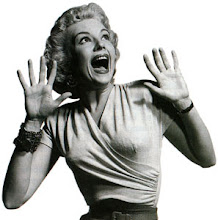The first film up in the 2011 program is highly original Danish Documentary, The Red Chapel. Filmmaker Mads Brügger’s gonzo project won the World Cinema Jury Prize at the 2010 Sundance Film Festival. Taking two Danish-Korean comedians to one of the world’s most restrictive dictatorships, Brügger’s aim was to expose the true nature of North Korea’s oppressive and ruthless regime. Brügger travels with Simon Jul Jørgensen and Jacob Nossell, both of whom were adopted from Korea as infants, to North Korea posing as a small, socialist Danish theatre group named The Red Chapel. The group and accompanying camera crew are given permission to enter the usually closed off country under the pretext that they will give a performance encouraging cultural exchange.
The documentary follows the group developing a comedy show in ‘collaboration’ with their minders and assigned Korean theatre director, whilst being given the ‘official’ sightseeing tour of Pyongyang. As pressure increases to please the state-appointed guides, the moral ambiguity of the director Brügger comes into question as he increasingly ignores the protests of his companions.
Jacob, who was 18 at the time of filming is handicapped with spastic paralysis, is both the victim and hero of the film. Choosing to travel to a country that is accused of killing disabled children at birth, Jacob wanted to use the film to prove that he was as capable as anyone else. However both the official regime and Brügger had other ideas and want to use him for their own propaganda.
Funny, curious and outrageous in equal measures, The Red Chapel is much more than simply an exploration of a totalitarian regime, it is an exercise in the ethics of filmmaking.While this film is an example of incredibly brave documentary-making it is also a study in manipulation. The North Korean regime wants to manipulate the filmmaker, the filmmaker in turn manipulates his subjects. Brügger recognises his single-mindedness but does nothing to correct it, asserting that showing the truth behind the dictatorship’s façade is more important than the feelings of both Simon and Jacob. You also have to wonder whether anybody considered the potential consequences for the local people who they duped?
Brügger’s cunning coupled with unparalleled bravado sees him, Simon and Jacob undermining and mocking the regime in ways that are both outlandishly hilarious and insightful. This documentary is bold and brash and at times touches on the absurd as it explores North Korea.
It is one thing to assert that humour can subvert political oppression, it is quite another thing to prove it. This truly is a film that has to be seen to be believed.
First published on Trespass

